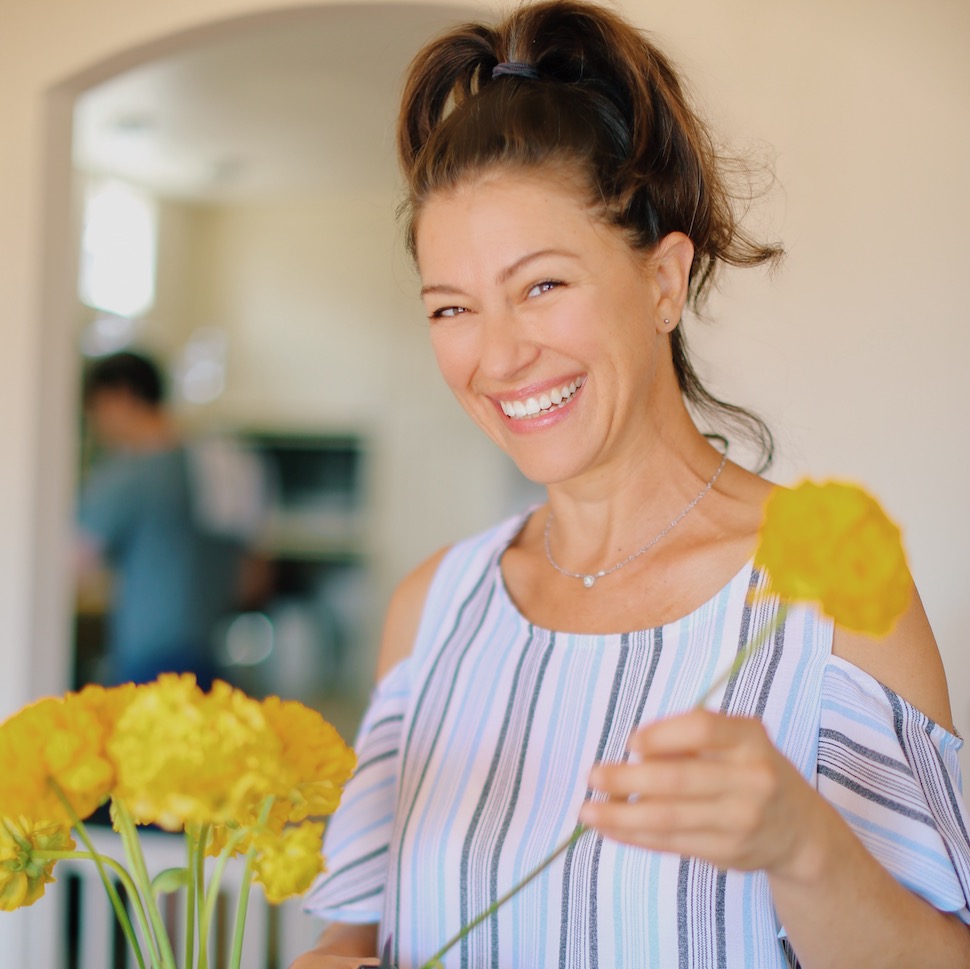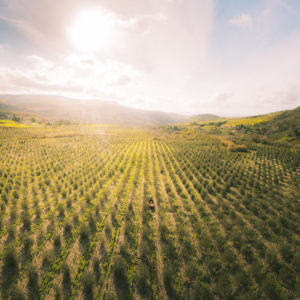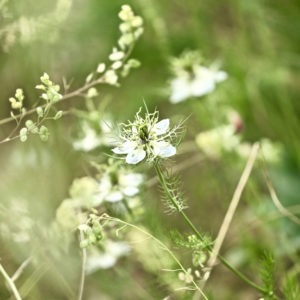
Few people can truly say that their craft runs in their blood, but this is true for Kim Walls, the CEO, co-founder, and visionary force behind Furtuna Skin. Skincare has been a lifelong passion of Kim’s, and her roots in the clean beauty space run deep.
“My father suffered from vitiligo, a condition in which skin cells do not produce pigment, and this inspired him to start a natural skincare line in Los Angeles,” shares Kim. “I went to labs with him, picked up whatever he was reading, and saw firsthand skincare’s very real connection to health.” Kim grew up on a remote 30-acre ranch in Idaho with her mother. “We foraged food, collected eggs, and rode horses to school,” she reminisces. “My exposure to the ‘Hollywood’ beauty industry, coupled with my fondness for the natural and organic world, taught me to love these two components of luxury skincare, and continue to drive me to this day. “

The farm in Sicily
What sets Furtuna Skin apart is an almost entirely vertical supply chain—wild-foraging ingredients from their estate in Sicily, innovating unique extraction practices, and creating powerful product blends that tackle multiple skincare concerns. We asked Kim to tell us more.
How does Furtuna Skin define clean beauty?
We surveyed hundreds of customers on what clean means to them, and determined that the crux of the consumer definition lies in using ingredients that are not harmful to body, culture, people, or environments. If workers are suffering from pesticide poisoning while picking ingredients—that’s not clean. If the environment is being harmed in such a way that an animal is at risk of extinction—that’s not clean. We operate off of the same principle as medicine: Do no harm.
“The power has shifted from the industry telling people what’s right to the people advocating for themselves—they know what they need, they know their bodies, and they know what’s right.”
How do you achieve sustainability on the farm, and beyond?
We’re not focused solely on things people can see to check a box—it’s built into the ethos of everything we do. From an ecological perspective, 80 percent of the farm is a bio-reserve and must be protected. As for the plants, they are all hand-harvested. Everything is happening in Italy, and mostly on the farm. For example, the olives we use are hand-picked and brought to our olive mill to avoid huge transportation pollution in the production cycle.
The ultrasound extraction method that we use is very green, as well. Though ultrasound has been around since 2012 in the pharmaceutical industry, we innovated and brought this method to the beauty industry. With ultrasound, we can extricate nutritious ingredients without damaging them. It’s done at low heat and creates little waste, though whatever waste is created we use for fertilization.

Nigella Damascena
Where do you see the future of the industry headed?
Clean beauty isn’t new—it’s been around since the ‘70s. What’s changing is the consumer’s level of education and awareness. The power has shifted from the industry telling people what’s right to the people advocating for themselves—they know what they need, they know their bodies, and they know what’s right. The challenge and the future of clean beauty is to meet the ever-growing expectations that consumers bring to the table.
Do you have a piece of skincare advice you’re eager to share?
Don’t overdo it! Don’t use too many products and switch it up all the time. When you’re eating, you need clean water and bright veggies. Skincare should be the same—a foundation of healthy practice and healthy ingredients.
Giana León
The latest and greatest beauty and wellness trends are Giana León's wheelhouse. She is currently on staff at goop.com and enjoys LA's sunshine state of mind while perpetually hunting for the city's best Aperol spritz.